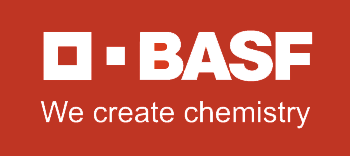For People Wanting to Become a Certified CCA:
When can I write my CCA exams?
The exams are offered on-demand. You can write at any point in the year.
Once I pass both exams, am I a CCA?
No, you are not a CCA until after your credentials package is approved by the Ontario Standards and Ethics Committee and you receive written confirmation.
When should I fill in my credential forms?
Once you have passed both exams (Ontario and International) a credentials package will be sent to you.
How do I record my work experience on the credential forms?
- 50% of work experience must be from North America
- Farming may count up to one year of experience, however you must have been making the cropping and management decisions.
- You may write the exams before you have enough experience, but you will not gain your CCA status until you achieve the required experience. After passing the exams you must submit your credentials package regardless of whether you have enough experience at the end of August. If you did not submit your credentials package, your exams scores will eventually be declared null.
- If you submit your credentials package and don’t have enough experience you will be given CCA Candidate Status until the required experience is met. You will have to update your credentials and resubmit once you have met the required experience.
How do I calculate my semester credits?
Course credits are typically a half or full credit. 0.5 credit = 1 course, 1.0 credit = 2 courses when you fill out your credential package.
For core courses (page 14 in credentials booklet) you will need a minimum of 15 semester credits and for supporting core courses you will need a minimum of 6 semester credits.
How do I calculate work experience?
- To be certified an applicant must have either:
- Four years of crop advising experience working with farmers or crop advisers and an unrelated degree or no degree; or
- Three years of experience and associate degree in an agricultural related field; or
- Two years of experience and a baccalaureate degree in an agricultural related field.
A year of experience should be credited for each year of qualified activity, if the applicant indicates that approximately one-third (i.e. at least 30% to 35%) of their time is engaged in one or more of the following activities:
- Advising farmers on crop production;
- Teaching or educating crop advisers about topics that are described in the Exam Performance Objectives or the ICCA Educational Areas Booklet;
- Advising or working with farmers to install soil conservation practices, or to meet state or federal regulations that are related to crop production (such as conservation compliance).
When do I start collecting continuing education hours?
You cannot begin acquiring continuing education until you receive confirmation that you have been certified.
For Certified Crop Advisors:
When does the next CEU cycle switch over?
Cycles run from January 1st to December 31st the following year; a 24-month cycle. However, the database does not automatically roll over into your new two-year cycle year right away. You may notice that even though you were supposed to be starting a new cycle, the system may still show your old cycle from the previous year. This is because the ICCA office in Madison does not update this until March in order to ensure any missing or late CEUs have been entered. Once the database is updated, any CCA with insufficient CEUs is automatically dropped.
When do I have to pay my CCA annual renewal?
Renewal invoices are sent out on the first of October every year. CCAs will have until December 31st to pay their renewal without penalty. After the first of January every year, if you have not yet paid your renewal, you will have to pay a $25 late fee on top of your renewal fee.
Do I have to attend the CCA Conference and Annual Meeting?
CCAs are not required to attend the conference and annual meeting, however it provides an excellent opportunity to meet other CCAs, become more familiar with the association as well as keeping up to date with current agronomic information.
What are my options if I want to leave the program?
There are various reasons why CCAs may choose to leave the program, however, here are some options for you to consider. The first option is voluntarily withdrawing. If you no longer wish to maintain your CCA designation, you have the option to voluntarily withdraw from the program. This means you leave the program in good standing, as opposed to being dropped. Those who voluntarily withdraw will also have the option to be reinstated within two years, without having to retest, as long as they make up any required CEUs and pay renewal fees.
If you are dropped from the program due to insufficient CEUs or failure to pay your renewal fees, you must go through the CCA certification process from the beginning.
Looking at retirement?
A CCA may apply for “retired” status to their local board if they have met the following requirements:
- To be eligible for “retired” status, a person had to be a CCA in good standing for 10 years or more and fully retired (not receiving compensation) in any field related to crop advising.
- “CCA Retired” is exempt from CEU requirements.
- If a “CCA Retired” decides to become an active CCA again, he/she has two years to do so without taking the International and local board exam again. After two years, they must take the exams again.
- Application and approval for the “CCA Retired” status is completed through the local boards. 5. A minimum fee for the International CCA will be set. Local boards have the discretion to also charge a fee, and in Ontario the fee is $25 + HST. A “CCA Retired” receives all normal correspondence from International and local programs including Crops and Soils Magazine.
If I drop my CCA status, can I get it back?
If you voluntarily withdraw from the CCA program, you have up to two years to be reinstated. However, after the two-year window, if you wish to regain certification again you will have to rewrite the exams and repeat the entire process again. If you are dropped from the program due to insufficient CEUs or failure to pay your renewal fees, you must go through the CCA certification process from the beginning.
Updating your information
If you have any changes in information such as email address or mailing address you need to update this right away. The easiest way to do this, is to contact the Ontario CCA office and they can update your information in the CCA database. It is important to keep your information up to date as communication is done through both email and mailing.
What are the CEU requirements?
Every two years you must accumulate 40 CEUs with a minimum of five CEUs in each of the four agronomic categories.
If you have the 4R NMS designation, you are required to have 7.5 CEUs in both the NM and SW categories (up from the regular five).
For those who have the RMS designation, the minimum CEUs required for IPM will increase to 10.0 (from 5.0).
If you do not meet the criteria, it will result in you being dropped from the program. A hardship appeal is the only option to get back in and will involve you having to convince the Ontario CCA Executive and CEU Committee that there were extenuating circumstances preventing you from meeting this requirement. If you are successful with your appeal, any CEUs that were lacking must be made up in addition to the required 40 during the next two-year cycle.
If you are on an extended medical leave from your employment (greater than six months), contact the Ontario CCA office to discuss options.
Applying for CEUs?
If you’re looking to host an event and believe it would qualify for CEU credits, you can do so here: https://www.certifiedcropadviser.org/education-ceus/offer-ceus
What do I do if I’m short of CEUs?
Check the Ontario CEU event calendar: http://ccaontario.com/ events. Check out the American Society of Agronomy upcoming webinars: https://www.agronomy.org/education/online-courses As well, the Soil Science Society of America has webinars for CCAs: https://www.soils.org/education/online-courses There is a long list of on-line CEUs as well at www.agronomy.org/ education/classroom/classes/by-category#category4 Scroll down the page to the heading “CEUs”.
For Growers:
Looking for a CCA in your area?
If you are seeking advice from a CCA in your area, your best option is to check with your local crop input supplier. Most likely, they will have a CCA on staff to help you.
How do I know a CCA has the credentials to help me?
In order to become a Certified Crop Advisor, you must write and pass two exams. These exams are based on both Ontario and International content. After passing both exams, CCA candidates are required to have adequate experience prior to receiving the designation. This experience is reviewed and assessed by a committee who determines whether the individual meets the standard requirements. Once receiving the designation, CCAs are required to maintain ‘continuing education units’ (CEUs). This means attending meetings, conferences and online seminars in order to stay current on the most recent agronomic practices and information.






